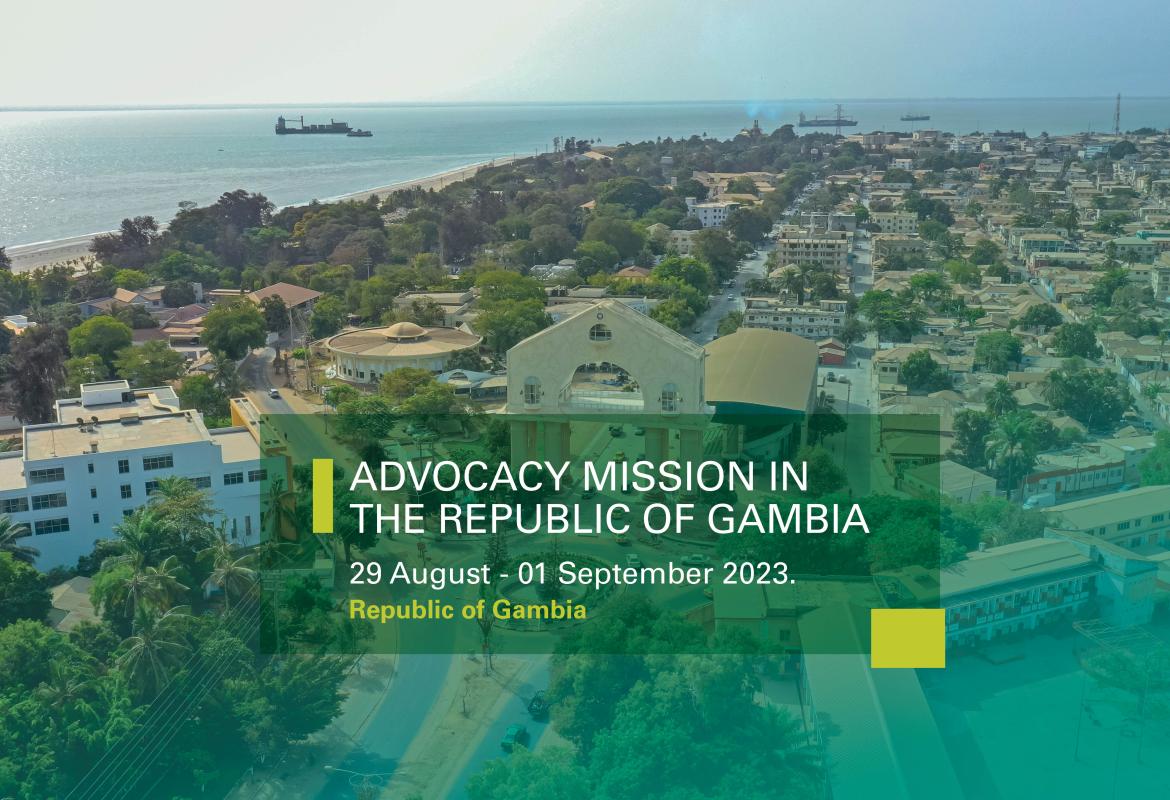Background
The African Charter on the Rights and Welfare of the Child (Charter/ACRWC) is a regional child rights instrument adopted in 1990 and entered into force in 1999. The Charter requires State Parties to submit reports on the measures undertaken to realize the rights contained therein. Article 43 of the Charter stipulates that State Parties shall submit their initial report two years after ratification and their periodic reports every three years thereafter. The Charter also establishes the African Committee of Experts on the Rights and Welfare of the Child (ACERWC/the Committee) with the mandate of monitoring the implementation of the Charter by receiving and considering State Party reports, among others.
The Republic of the Gambia ratified the Charter on 30 March 2001. However, the State Party has not yet submitted any report to the Committee, which was due in 2003. The Committee has been engaging State Parties which have not reported in various ways including through workshops and advocacy missions. The Committee organized an experience-sharing forum for the ratification of and reporting on the Charter in 2017 in Mauritius, where the Republic of the Gambia participated in and expressed its commitment to submit its report. Following up on the 2017 Forum and in line with its mandate, the Committee would like to further engage in dialogue with the State Party concerning reporting on the status of the implementation of the Charter.
The Committee expresses its appreciation to the Government of The Gambia for welcoming the Committee to conduct the advocacy mission in the State Party.
Rationale for the advocacy mission for reporting
The Committee undertakes advocacy mission on reporting to encourage and sensitize State Parties to comply with their reporting obligation as stipulated under article 43 of the Charter. The main rationale behind the whole process of the State Party reporting mechanism is giving States an opportunity to evaluate if their laws, policies and actions, are in line with the Charter and other international standards. More specifically, the submission of State Party reports serves as a platform:
- To examine the harmonization of laws and policies with the Charter;
- To assess the measures undertaken by States to respect, protect and fulfil the rights in the Charter;
- To identify the progress and challenges in the implementation of the Charter;
- To initiate dialogue and conversations about the implementation of the Charter among children, CSOs, and other stakeholders thereby increasing awareness about children’s rights at national level;
- To learn from the experience of other State Parties on the implementation of the Charter documented in the State Party reporting procedure;
- To receive recommendations from the Committee on the measures States ought to take to reinforce their efforts in implementing the Charter; and
- To affirm the commitment of States demonstrated through ratification.
Therefore, the Committee believes that undertaking the intended advocacy mission assists the Government of the Gambia to assess its actions and measures in implementing the Charter and to submit its State Party report. The mission further enables the Committee to understand the progress made, the challenges faced and the opportunities that exist to fast-track the submission of the initial State Party Report. Moreover, the discussions during the advocacy mission will inform the content and the procedure of compiling the initial report of the Republic of The Gambia.
The mission also creates an opportunity to increase the visibility of the Charter, the Committee, and the State Party reporting procedure among government organs and CSOs. Such awareness facilitates the mobilization of technical and financial resource for the submission of the initial report, and follow-up on the implementation of the recommendations of the Committee in the future.
Objectives of the Mission
The main objectives of the advocacy mission include:
- To recall to the Government of The Gambia about the importance of reporting on the implementation of the Charter with a view to ensure regular and timely reporting
- To identify the main challenges the State Party is encountering in submitting its report to the Committee
- To encourage the State Party to provide firm commitment and a clear timeline on the submission of its initial report to the Committee
- To provide guidance on how to compile and submit State Party report on the Charter
- To assess the mechanisms and institutional setups available for the compilation and submission of State Party report
- To engage with the National Human Rights Commission, various CSOs, Children and other stakeholders that can support the process of the submission of the State Party report of The Gambia
Methodology
The Committee uses consultative methods in undertaking its advocacy missions. During the intended visit, the Committee intends to undertake the activities below:
- High level dialogue: the Delegation of the Committee intends to have a high-level dialogue with the Minister of Gender, Children and Social Welfare, Minister of Foreign Affairs, and the Minister of Justice, among others.
- Consultative dialogue with the Government of the Gambia: The Committee intends to hold discussions with representatives from the Ministry of Foreign Affairs, Ministry of Justice, and the Ministry of Gender, Children and Social Welfare responsible for regional and international mechanisms and reporting to treaty bodies.
- Consultative dialogue with Stakeholders: The Committee also intends to hold discussions with the National Human Rights Commission of The Gambia, UN Agencies, CSOs, Child Led Organizations including Children’s Parliament, and the Media.
- Workshop with key stakeholders: The Committee plans to organize a one-day workshop to bring all stakeholders together including the Government, CSOs, UN Agencies and Children. The workshop is intended to increase awareness about the role of all stakeholders in ensuring timely and regular submission of State Party reports.
Time frame
The advocacy mission is intended to take place from 29 August to 01 September 2023.







